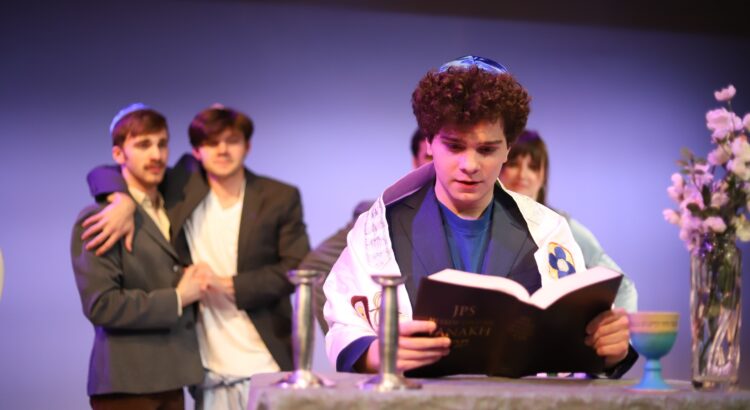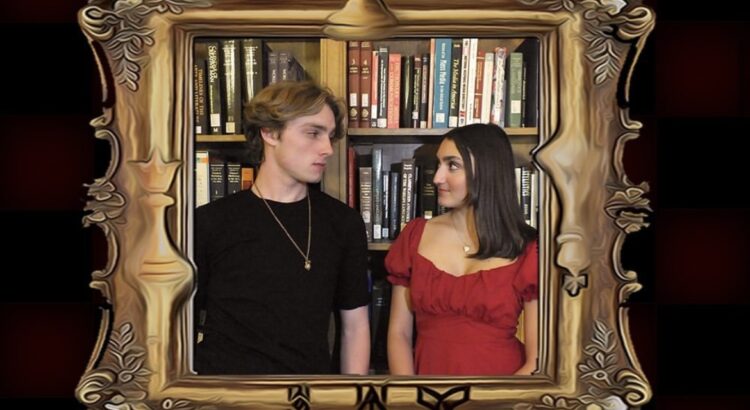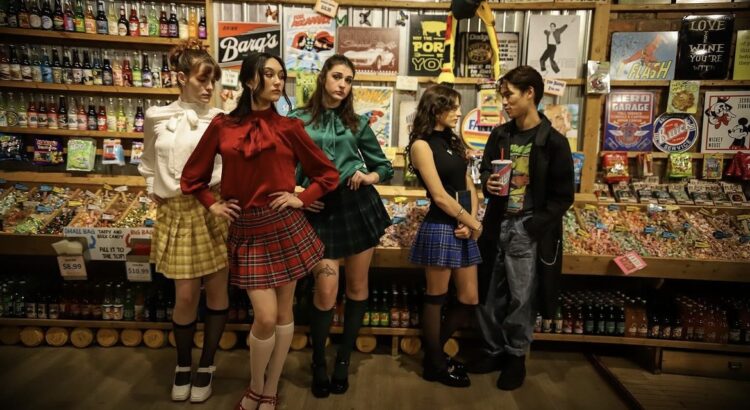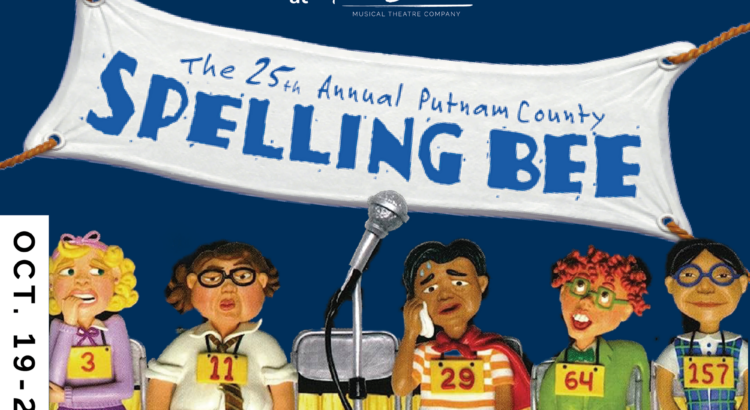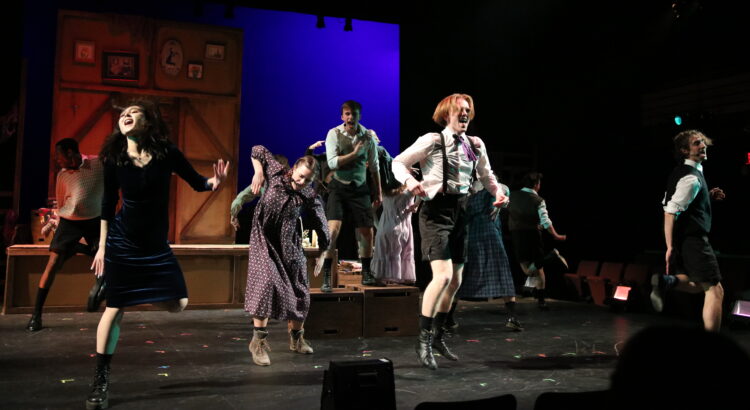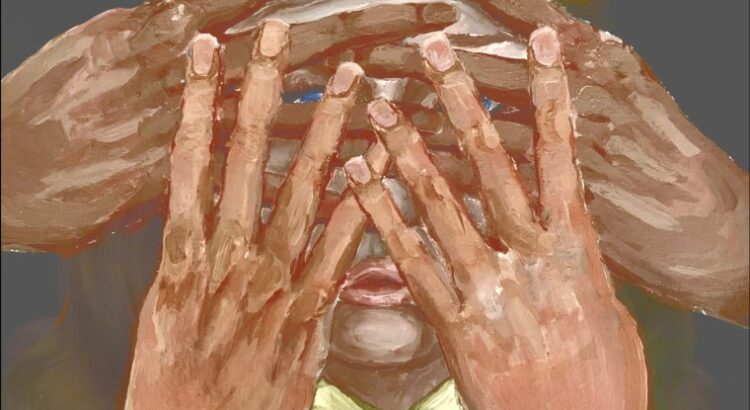[Title photo: Sam O’Neill (left), Caleb McArthur and James Parascandola.]
It’s not often that I see a show that leaves me as moved as Basement Art’s production of Falsettos did.
Basement Arts is an organization whose mission is to create “inclusive student-produced theatre by allowing students from across campus to execute all aspects of the theatrical production process”. They perform three shows a semester, as well as produce the annual Late Night events such as the Mx. Walgreen Pageant and 24-Hour Theater. This semester already featured some emotional heavy hitters —Collective Rage: A Play in 5 Betties by Jen Silverman and For Colored Girls/When The Rainbow is Enuf by Ntozake Shange.
Falsettos is a culmination of merging two one-act musicals, March of the Falsettos and Falsettoland, produced individually in 1981 and 1990. A fully sung-through musical— there are few moments without song. However, much of the show reads as a play, with heightened drama in every moment and not a single superfluous word. The show follows a Jewish Family in New York City in the 1970s— Marvin (Sam O’Neill), the frustrated ex-husband of the underappreciated Trina (Caroline Patterson), and partner to the stylish Whizzer (Caleb McArthur). Trina and Marvin’s son, Jason (James Parascandola), is growing up quickly, rapidly reaching the age of his bar mitzvah. Among all this, Trina and Marvin’s psychiatrist, (Sammy Guthartz), fall in love and get married. Thus, completes the web of this unusually interwoven family. That is, until you meet the quirky lesbians from next door in Act II, Dr. Charlotte (Abby Lyons) and Cordelia (Kate Cummings).
Falsettos was written by the incomparable William Finn and James Lapine, both Jewish writers (and Finn identifying as queer himself). It’s hard not to love this gem of a show. Its mechanical musical composition and emphasis on developing endearing and complex characters make the show feel complete and questionably familiar. The music is fun and catchy yet requires exceptional musical expertise to execute well (skillful music direction by Caleb Middleton). The story blends humor and heartache while these characters are on their quests for happiness and acceptance.
The relevance that Falsettos retains from its 1992 premiere is remarkable. Difficult family dynamics, a rapidly changing social landscape, and a world that feels like it’s uncontrollably crumbling around them. Successful musicals stand the test of time, and after over three decades it’s clear that Falsettos made the cut.
The tense family dynamics were masterfully cultivated by director Naomi Parr and navigated equally as masterfully by this intense and thoughtful cast. Patterson (the needy, Trina) has one of the most captivating voices in the show—she does not shy away from the luxurious lines in the score while capturing Trina’s true angst and frustration with the imprudent men in her life. Her dynamic alongside the charming and perfectly awkward Mendel (Guthartz) was sublime. O’Neill and McArthur navigate perhaps the most complicated relationship dynamic in the show, one loaded with lust and devotion, sprinkled with violence and need for acceptance. The nuance the two brought to this unbelievably deep relationship was remarkable. Whizzer and Marvin’s poignant love maneuvered through each twist and turn, even past the heartbreaking finale—an arduous task beautifully achieved. Underneath these two intricate relationships leaves Jason (Parascandola), who left to pick up the pieces (literally and physically). Parascandola’s playful exchange with youth and hope left me rooting for Jason, wondering where his little life will take him next. It’s plain to see how this cast ripped my heart out and left it in the 1970s with them.

Parr states in her director’s note: “Falsettos addresses devastating tragedy but lives instead in the celebration of life, including mishaps that surround these moments of grief.” With one of the most responsive and touched audiences I’ve ever encountered, it seems the only thing missing from Falsettos was another weekend of shows.
April 6th, 9pm. Newman Studio. Images thanks to Naomi Parr and Basement Arts.

